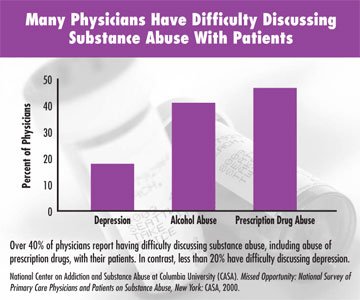Collecting Substance Abuse Disorder Disability Benefits Is A Reality
Substance Abuse Disorder disability claims are often challenged by disability insurance companies. How Can Dell Disability Lawyers Assist You?
Dell Disability Lawyers have represented numerous long term disability claimants that have been unable to work as a result of a substance abuse disorder (drugs or alcohol).

Substance abuse disorder is a category of long-term disability which is often overlooked by individuals who could file a claim for long-term disability. That’s because when we think of categories in which people usually file disability claims with their long-term disability insurance carrier, physical disabilities are usually the first come to mind. It is common that substance abuse develops secondary to a physically disabling condition.
Long-term disability insurance carriers are usually quick to deny a substance abuse disability claim for a number of reasons. Not the least of which has to do with the insurance company’s view that drug and alcohol abuse on the part of the claimant can be resolved through various forms of treatment. In the insurance carrier’s eyes, the responsibility toward making long-term disability payments to the claimant is mitigated. With that said, the long-term disability insurance carrier fails to acknowledge the fact that drug and alcohol abuse is a mental disease that must be managed and one that cannot be cured.
Dell Disability Lawyers have an expansive understanding of the significant restrictions and limitations that a person with a substance abuse disorder must live with on a daily basis. We have worked closely with top physicians in order to sufficiently satisfy a disability carrier’s threshold of evidence necessary to prove that a client is disabled due to a substance abuse disorder.
Not everyone suffering with substance abuse qualifies for long-term disability benefits, therefore the medical records of each client must be reviewed to determine the level of restrictions. Not every disability insurance policy provides coverage for substance abuse.
What Is Substance Abuse Disorder?
Substance abuse disorder is defined by meeting consistently a set number of criteria over 12 month period. According to the proposed revisions slated to appear in DSM-5, such criteria include:
- repeated substance use resulting in a failure to carry out major responsibilities at work, school, or home
- ongoing substance use even though interpersonal problems persist as a result of such use
- higher amounts of the substance are consumed in order to achieve the same, previous effect
- alcohol or drug use continues despite the user’s knowledge of the harmful effects caused by the excessive use of alcohol or drugs
Let’s say for a moment that you are struggling with drug and alcohol abuse. Over the course of time, you have been in and out of inpatient rehab along with making numerous follow-up visits to a psychiatrist and an AODA counselor due to the number of relapses that have occurred. During the follow-up visits to your psychiatrist, you are told that you have substance abuse disorder because your drug and alcohol abuse impairs your ability to function normally and hold down a job as result of substance abuse disorder. The evidence for such a diagnosis is clear to your psychiatrist since you changed jobs seven times in the past two years. The numerous job changes were due to the behavior associated with drug and alcohol addiction apart from consuming alcohol and ingesting drugs.

Substance-abuse disorder runs far deeper than simply giving in to drugs and alcohol. The mindset of an addict differs from the mindset of person who can function normally. A person who has a history of drug and alcohol abuse is prone to other mental disorders that cause long-term disability. Depression, schizophrenia and bipolar disorder are mental disorders that can prevent a person from having the ability to hold down a job and lead a productive life.
In this case, your psychiatrist or AODA counselor might recommend that you file a long-term disability claim as result of your substance abuse disorder. Make sure the behavioral health specialists you see are on board with filing a long-term disability claim. A disability attorney will help you navigate all of the legal challenges you’ll face when you file a substance abuse disability claim. Our disability attorneys are trained to identify the strengths and potential weaknesses of your potential substance abuse disability claim.
Once your disability lawyer files your disability claim with your long-term disability insurance carrier, you don’t have to worry about dealing with the insurance carrier directly. All instances of communication with your long-term disability carrier will be handled through your disability attorney regarding your substance abuse this claim. That means you can focus on your recovery because you know your disability lawyer is working hard to obtain your disability benefits.
Resources
There are many valuable sources of substance abuse disorder information available, such as:
- American Psychiatric Association DSM-5 – Diagnostic and Statistical Manual of Mental Disorders (DSM) is the standard classification of mental disorders used by mental health professionals in the United States and contains a listing of diagnostic criteria for every psychiatric disorder recognized by the U.S. healthcare system.
- National Institute on Drug Abuse
- Substance Abuse and Mental Health Services Administration
- National Institute of Alcohol Abuse and Alcoholism
- Alcoholics Anonymous
- Narcotics Anonymous






